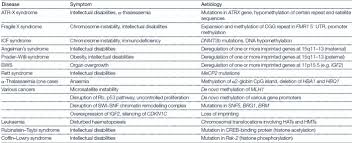Crititism of terrorism research.
Ancient DNA Reveals Mysterious New Group of Humans in Colombia With No Genetic Ties to People Today
The previously undocumented lineage of hunter-gatherers seems to have disappeared around 2,000 years ago
https://www.science.org/content/article/microbe-bizarrely-tiny-genome-may-be-evolving-virus
Microbe with bizarrely tiny genome may be evolving into a virus
With DNA focused almost entirely on replication, newly discovered organism blurs the line between cells and viruses
I think there was a brief discission of viral origins over at TOP. I remain convinced that “viruses” per se are not a valid taxonomic group. They are just “really small, parasitic, barely living things we don’t understand.” If this discovery holds up, it would support that thought. My favorite explaination of the group is that is is a combination of degenerate, parasitic cellular life in DNA viruses (specifically dsDNA viruses), survivors of a pre-DNA RNA dominated world in RNA viruses(specifically ssRNA viruses) and the other 5 classificatoons that i don’t have a handy explanation for. @chenille was in on this before as well, and knows more about it than i, though.

I am not an expert, but yeah. The different realms have no genes in common with each other and possibly each of the dozen or so kingdoms might have a separate origin too. Presumably RNA viruses go back to when that was the main genetic material, and retroviruses go back to when DNA was used but not always the master copy.
Exactly where they come from is still another question – parasitic cells that have been stripped down to just a few genes is one possibility, but they could also be pieces of living things. Bacteria have little bits of DNA called plasmids that they share with each other. You could imagine something like that spreading just because it would encourage the host to share more, and eventually forcing the host to share it, and maybe ending up with its own mechanisms to get into less receptive cells. At the very least you might get virioids (infectious RNA with no protein coat) that way.
Evidence is tricky to come by. The last shared ancestor of all living things was already pretty far advanced from the first life, and without even common genes to trace it’s hard to decide what could have come from what. (Not to mention that horizontal transfer can make genes misleading, and it is a serious possibility when it comes to viruses.)
Honestly I think the most likely thing that could go wrong is that it won’t work at all. Everything they said here is genes, genes, genes. Some dark matter to that does something we don’t understand. But DNA is treated like code, and once you edit the code you just load it in and it runs. I presume they’re aware epigenetic factors exist but they obviously think they’re of secondary concern.
Our bodies are created by epigenetic factors. A zygote needs to start with indicators to let it know which way is up, and that sets off a whole wave of differently expressed genes, like Hox genes that tell your cells where they are in your body. In vertebrates those are activated roughly in sequence – a bunch of things move along the chromosome manipulating histones, preparing each section at the appropriate time. How is that set up? All I know is it’s over my head.
I don’t know what kind of plans the scientists involved actually have here…just when people talk about DNA like code without any mention of how to set up the development environment, it makes me wonder if it’s not over their head too.
Who nerds to worry about epigenetic changes, that just adds more complications! Wait a minute.

Well shit, nope, didn’t want to know about that!
And those are the small epigenetic problems. I am expecting “oops all cartilage” level stuff. How much genetic difference is there between a functioning human body and a formless mass of cancer?
Very, very little difference. Even just coding a protein exactly right in sequence but with one transcriptase slightly off gives you a prion instead of the intended protein.
Oh shit, i had not even considered the potential for prions. So. Many. Prions. Yeah, let’s not.
Yes. But as the article notes, the teeth do not tell the whole tale: e.g., panda teeth suggest omnivorous bear diet.
Oooh! That’s a really interesting implication: viruses having an evolutionary path from bacteria or archea (or other microbes?) into viruses via some kind of code-streamlining selection process. I—weak on microbiology—had assumed viruses formed from selection processes on incomplete and ‘building-block’ genetic material. The implication of going from more complex to viral life forms would make (at least some) viruses part of the phylogenetic tree of life.
It’s a really fascinating discussion, and it can be because evidence is pretty damned thin. But it seems clear that the various viral groups do not share a common origin. There are some that are probably descended from bacterial or archean organisms that adapted to a parasitic lifestyle (similar to what Mycoplasma have now) and lost unnecessary functions over time, most likely the dsDNA group. There are ssDNA viruses that may be descended from transposons, ssRNA viruses that may trace back to a pre-DNA RNA world that persist by preying on DNA-based lifeforms. It gets way more complicated, and I do not have theories for all for them. Just for reference:
- Group I: double-stranded DNA viruses.
- Group II: single-stranded DNA viruses.
- Group III: double-stranded RNA viruses.
- Group IV: positive sense single-stranded RNA viruses.
- Group V: negative sense single-stranded RNA viruses.
- Group VI: single-stranded RNA viruses with a DNA intermediate in their life cycle.
- Group VII: double-stranded DNA viruses with an RNA intermediate in their life cycle
The chance that these are at all related is pretty much nil. They may well be less closely related to each other than any two DNA-based lifeforms are to each other. (BTW, I tend to be among those who consider them “life,” even though they do not metabolize all the time. They certainly undergo Darwinian evolution, they reproduce, they do “consume” prey. I know, it may not technically meet all the qualifications, but my opinion is that the qualifications are more limited than they should be.
Do they metabolize any of the time? I don’t generally think of viruses as having metabolism, just redirecting that of a host cell, but like I said I’m not an expert. ![]()


